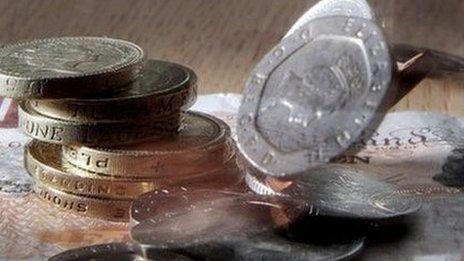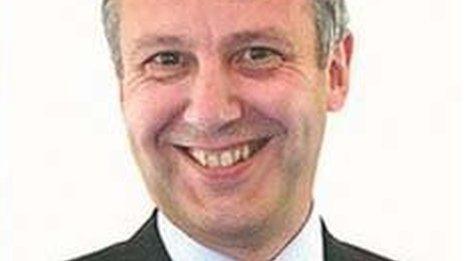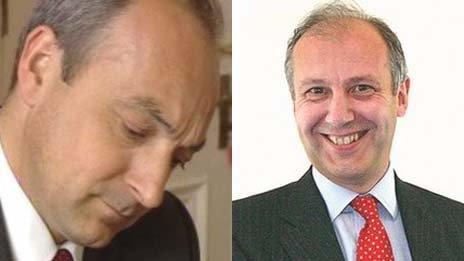Lesley Griffiths calls for transparency over Wales' council officials' salaries
- Published
The minister said local authorities had to have transparent pay policies
Councils must show how they decide to award big salaries to their officials, says Local Government Minister Lesley Griffiths.
The public should have easy access to information about senior managers' pay, she tells BBC Wales' Sunday Politics.
Guidance on setting pay will be issued to councils next month.
A recent report by the Wales Audit Office (WAO) found chief executive pay varied from about £105,000 to £195,000.
As a result of a cross-party deal in the assembly last year, senior officers' pay can in future be referred to an independent remuneration panel.
Guidance will be issued in April saying that salaries of more than £100,000 should go to votes of full council.
Mrs Griffiths said: "It's up to local authorities to have those pay policy statements. It's absolutely right that they have them. That the public can access them and see how the decisions are being taken.
"They are autonomous employers, local authorities. They set their salaries, they set their pay policies statements and it is right that they do that.
"But because of the concerns that were raised with me... I think it's right that local authorities can demonstrate how those decisions have been made and that the public have easy access to it - and that's really important that they are able to see those pay policy statements very easily."
She declined to discuss controversy over awards to the chief executives of Carmarthenshire and Pembrokeshire councils which are both the subject of police inquiries.
Two senior council officers at Caerphilly council were charged last month following a police investigation into pay rises.
'Monitoring'
Chief executive Anthony O'Sullivan and his deputy Nigel Barnett face charges of alleged misconduct in a public office.
Mrs Griffiths' call for transparency comes as authorities prepare to send out council tax bills for the next financial year.
Budgets at county halls are being cut deeper in 2014/15, partly as a result of a Welsh government decision to protect funding for the NHS.
The Welsh Conservatives have blamed the Welsh government for rises of 5% at some councils - the maximum at which ministers have threatened to cap councils.
The Tories contrast the situation in Wales with that in Scotland, where council tax has been frozen for seven years in a row, and with council tax cuts at some English authorities.
However, Mrs Griffiths insists bills remain lower in Wales than in England.
She added: "I am monitoring the budgets. I don't want them to be unreasonable and I know that they are taking the views of council tax payers into consideration.
"Again, as they have gone round setting their budgets, I think they have engaged with the public at a level that they haven't done before.
"What I have said is that if any are unreasonable I will use my capping powers and at the moment I'm analysing all the increases that are coming in."
Sunday Politics is on BBC1 Wales at 11:00 GMT and next week BBC Cymru Wales will be taking a closer look at council services and council tax.
- Published7 March 2014

- Published6 March 2014

- Published30 January 2014
